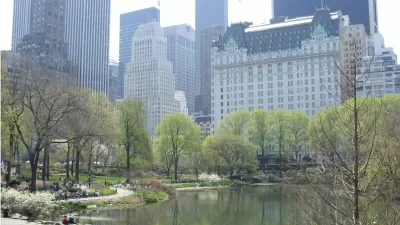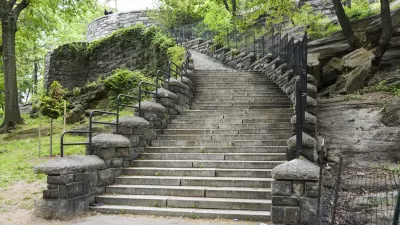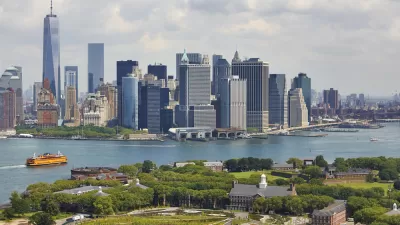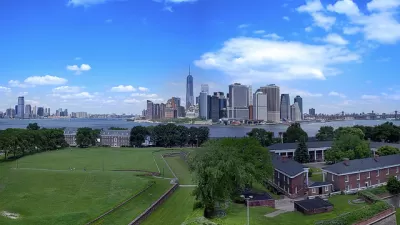New York City parks are in desperate need of maintenance and infrastructure improvements, and the city should make investments now to support these essential public spaces.

Eli Dvorkin makes the case for a much-needed boost in funding for the New York City Department of Parks and Recreation’s budget: $100 million more this year and a plan for generating funds in the future. "Parks in every borough are struggling with aging assets that are at or near the end of their useful lives – including collapsed drainage systems, crumbling retaining walls and structurally deficient bridges."
Dvorkin outlines a number of ways the city could establish substantial and long-term revenue streams. Many parks do not offer concessions, for example, and these sales could potentially raise $14 million a year, he says. "The popular local food vendors at the renovated pavilions along Rockaway Beach are prime examples of concessions that add to the experience for parkgoers, support community businesses and raise revenue – all without detracting from the quality of open, noncommercial public space."
Other possible revenue sources include surcharges on event tickets, dockage fees, and golf course green fees. Dvorkin also suggests that the city take advantage of development incentives, such as density bonuses and community benefits agreements, to bring in additional funds. "While these incentives and agreements have been used to address a variety of community needs to date, very few have been designed to fund open space creation, infrastructure improvements or ongoing maintenance."
FULL STORY: New York City parks need more money, here’s how to raise it

Planetizen Federal Action Tracker
A weekly monitor of how Trump’s orders and actions are impacting planners and planning in America.

Map: Where Senate Republicans Want to Sell Your Public Lands
For public land advocates, the Senate Republicans’ proposal to sell millions of acres of public land in the West is “the biggest fight of their careers.”

Restaurant Patios Were a Pandemic Win — Why Were They so Hard to Keep?
Social distancing requirements and changes in travel patterns prompted cities to pilot new uses for street and sidewalk space. Then it got complicated.

California Homeless Arrests, Citations Spike After Ruling
An investigation reveals that anti-homeless actions increased up to 500% after Grants Pass v. Johnson — even in cities claiming no policy change.

Albuquerque Route 66 Motels Become Affordable Housing
A $4 million city fund is incentivizing developers to breathe new life into derelict midcentury motels.

DC Area County Eliminates Bus Fares
Montgomery County joins a growing trend of making transit free.
Urban Design for Planners 1: Software Tools
This six-course series explores essential urban design concepts using open source software and equips planners with the tools they need to participate fully in the urban design process.
Planning for Universal Design
Learn the tools for implementing Universal Design in planning regulations.
Heyer Gruel & Associates PA
JM Goldson LLC
Custer County Colorado
City of Camden Redevelopment Agency
City of Astoria
Transportation Research & Education Center (TREC) at Portland State University
Camden Redevelopment Agency
City of Claremont
Municipality of Princeton (NJ)





























